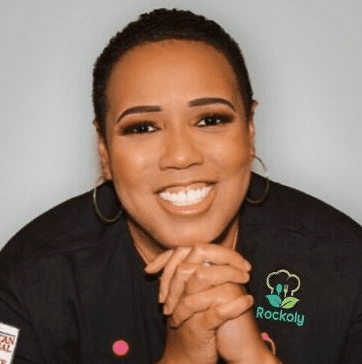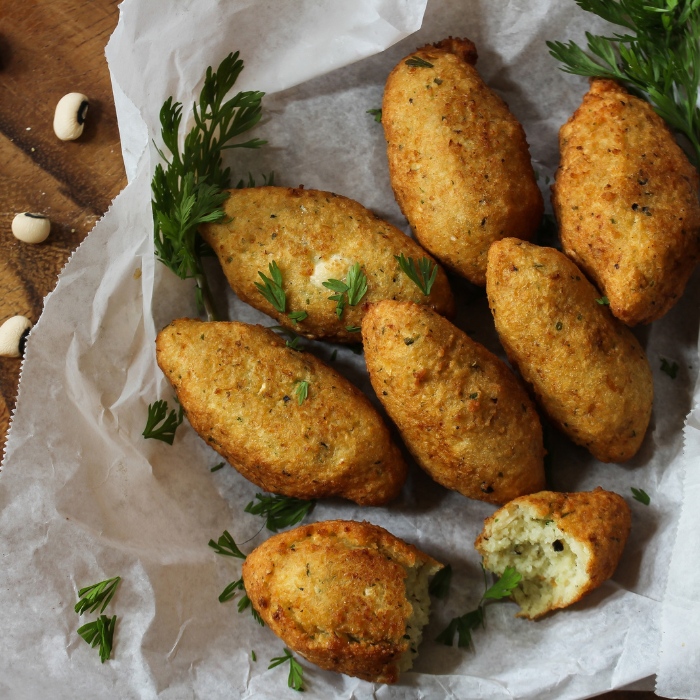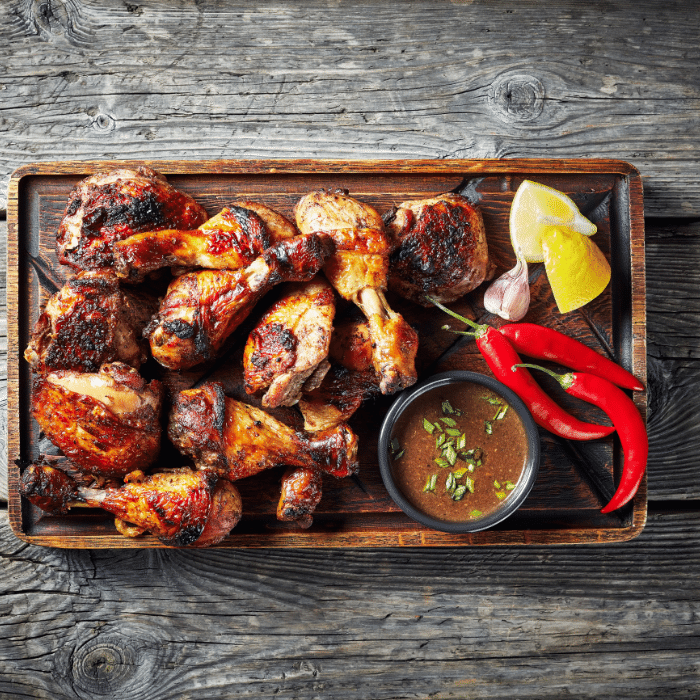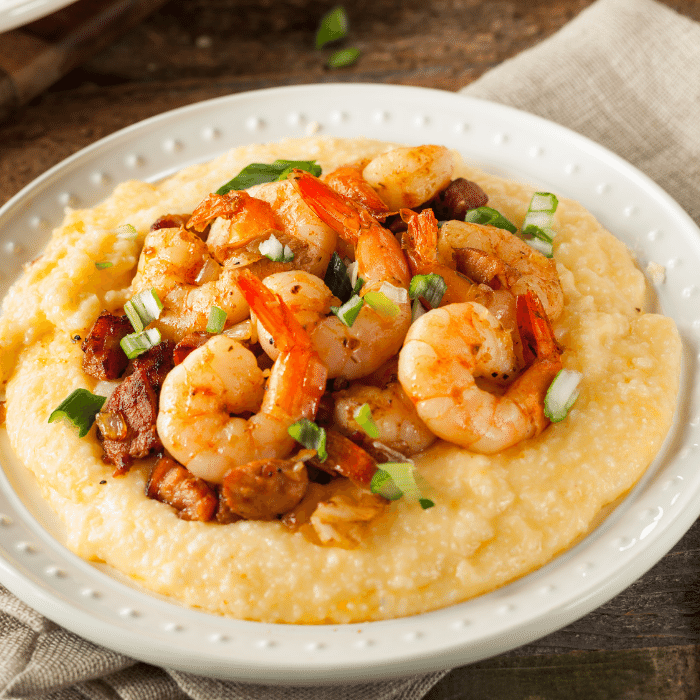In February, come together with your team to celebrate Black History Month by learning about and cooking traditional African American dishes such as Black-Eyed Pea Fritters, Jerk Chicken and Southern Shrimp and Grits. Not only will you get to experience the delicious flavors, but you will also gain insight into the history and cultural significance behind these dishes and the ingredients used in them.

Black History Month Specials
Black-Eyed Pea Fritters

On the Menu:
Black-Eyed Pea Fritters with Chipotle Lime Sauce
Workshop Duration:
60 min
Dietary Info:
Gluten-Free Option, Vegetarian, Vegan Option
Drink Pairing
Add a refreshing Watermelon Agua Fresca to complete the occasion. (+30 min)
These savory corn and black-eyed pea fritters are crunchy on the outside and soft on the inside. Dipped in a delicious chipotle lime sauce, this appetizer will satisfy any taste bud. Add a Watermelon Agua Fresca to complete your workshop.
Group Size:
| < 5 | 5 – 30 | 31 – 50 | 50+ |
| $645 | $129/pp | $119/pp | $109/pp |
Virtual event rate includes personal chef, dedicated event planner, ingredient delivery, gratuities and all service fees.
Jamaican Jerk Chicken

On the Menu:
BBQ Jerk Chicken with Mango Salsa
Workshop Duration:
60 min
Dietary Info:
Gluten-Free Option, Vegetarian Option, Vegan Option
Wine Pairing
Complete your event with an African American owned wineries pairing.
Rice and Peas
Add Rice and Peas to complete the menu. (+30 min)
Enjoy juicy, flavorful chicken thighs topped with a zesty yet sweet mango salsa that adds a delightful element of freshness. Vegetarians and vegans will enjoy a delicious cauliflower steak. Enhance your culinary experience with the Rice and Peas add-on.
Group Size:
| < 5 | 5 – 30 | 31 – 50 | 50+ |
| $695 | $139/pp | $129/pp | $119/pp |
Virtual event rate includes personal chef, dedicated event planner, ingredient delivery, gratuities and all service fees.
Southern Shrimp and Grits

On the Menu:
Southern Shrimp and Corn Grits with Mixed Vegetables
Workshop Duration:
60 min
Dietary Info:
Gluten-Free, Vegetarian Option, Vegan Option
Wine Pairing
Complete your event with wine pairings from African American-owned wineries.
Collard Greens
Add Collard Greens to complete the menu. (+30 mins)
Bring this traditional Southern dish to your kitchen. Buttery, cheesy grits pair incredibly well with Cajun shrimp, andouille sausage, and mixed vegetables. This bold combination of flavors served over creamy grits will leave you savoring each bite. Add Collard Greens to complete the menu.
Group Size:
| < 5 | 5 – 30 | 31 – 50 | 50+ |
| $745 | $149/pp | $139/pp | $129/pp |
Virtual event rate includes personal chef, dedicated event planner, ingredient delivery, gratuities and all service fees.
ENGAGING. UNIQUE. FUN.
How Rockoly Events Work

STEP 1
Tell Us About Your Team
How many participants will be joining? Any vegetarians, vegans in the mix? Looking for a casual lunch break, a dinner party, or maybe a Happy Hour or Wine Tasting? Your event is fully customizable!
STEP 2
Choose A Workshop
Select from our exciting workshop menus, or create your own. Fan favorite options include Traditional Pasta Making, Mexican Street Tacos and Quick Italian Pizza.
STEP 3
Connect & Have Fun!
A Rockoly chef will guide your team through the workshop and help foster interaction. And at the end, your team will enjoy a delicious meal together!



Kylie Bradbury
Webinar & Social Media Specialist












































